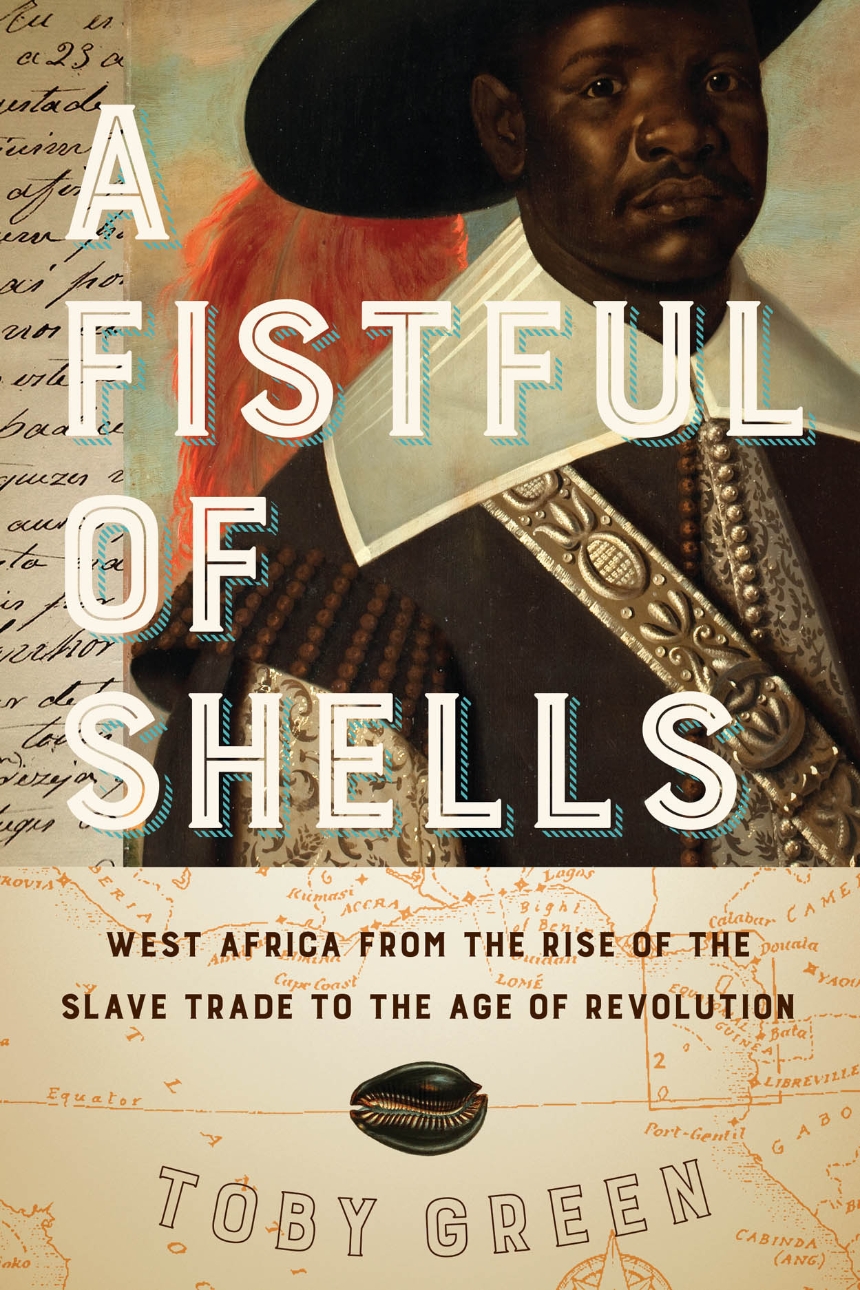A Fistful of Shells
West Africa from the Rise of the Slave Trade to the Age of Revolution
A Fistful of Shells
West Africa from the Rise of the Slave Trade to the Age of Revolution
With A Fistful of Shells, Toby Green transforms our view of West and West-Central Africa by reconstructing the world of these kingdoms, which revolved around trade, diplomacy, complex religious beliefs, and the production of art. Green shows how the slave trade led to economic disparities that caused African kingdoms to lose relative political and economic power. The concentration of money in the hands of Atlantic elites in and outside these kingdoms brought about a revolutionary nineteenth century in Africa, parallel to the upheavals then taking place in Europe and America. Yet political fragmentation following the fall of African aristocracies produced radically different results as European colonization took hold.
Drawing not just on written histories, but on archival research in nine countries, art, oral history, archaeology, and letters, Green lays bare the transformations that have shaped world politics and the global economy since the fifteenth century and paints a new and masterful portrait of West Africa, past and present.
650 pages | 6 x 9 | © 2019
History: African History, Discoveries and Exploration, European History, General History
Reviews
Table of Contents
Foreword
Note on Spellings/Names
Glossary
Introduction
Part One
Causes: Economic Divergence in West and West- Central Africa
Timelines for Part One
1 ‘Three Measures of Gold’: The Rise and Fall of the Great Empires of the Sahel
2 Causeways across the Savannah: From Senegambia to Sierra Leone
3 Ready Money: The Gold Coast and the Gold Trade
4 Rivers of Cloth, Masks of Bronze: The Bights of Benin and Biafra
5 The Kingdom of Kongo: From Majesty to Revolt
Coda to Part One
Part Two
Consequences: Politics, Belief and Revolutions from Below
Timeline for Part Two: West African Political History, c. 1680–1850
Prologue to Part Two
6 ‘With Boots Worth 3 Slaves’: Slavery and Value in the Eighteenth Century
7 On a War Footing: The ‘Fiscal- Military State’ in West African Politics
8 Feeding Power: New Societies, New Worldviews
9 Transnational Africas, Struggle and the Rising of Modernity
10 Warrior Aristocracies and Pushback from Below
11 Let them Drink Rum! Islam, Revolution and the Aristocracy
Conclusion
Bibliography
Notes
List of Illustrations
Index
Awards
McGill University: Cundill Prize
Shortlist
African Studies Association UK: Fage & Oliver Prize
Shortlist
Historical Writers Association: HWA Non-Fiction Crown Award
Won
American Historical Association: Jerry Bentley Prize
Won
Los Angeles Times: Los Angeles Times Book Prizes
Finalist
British Academy: Nayef Al-Rodhan Prize for Global Cultural Understanding
Won
English PEN: PEN Hessell-Tiltman Prize for History
Shortlist
The Wolfson Foundation: Wolfson History Award
Shortlist
